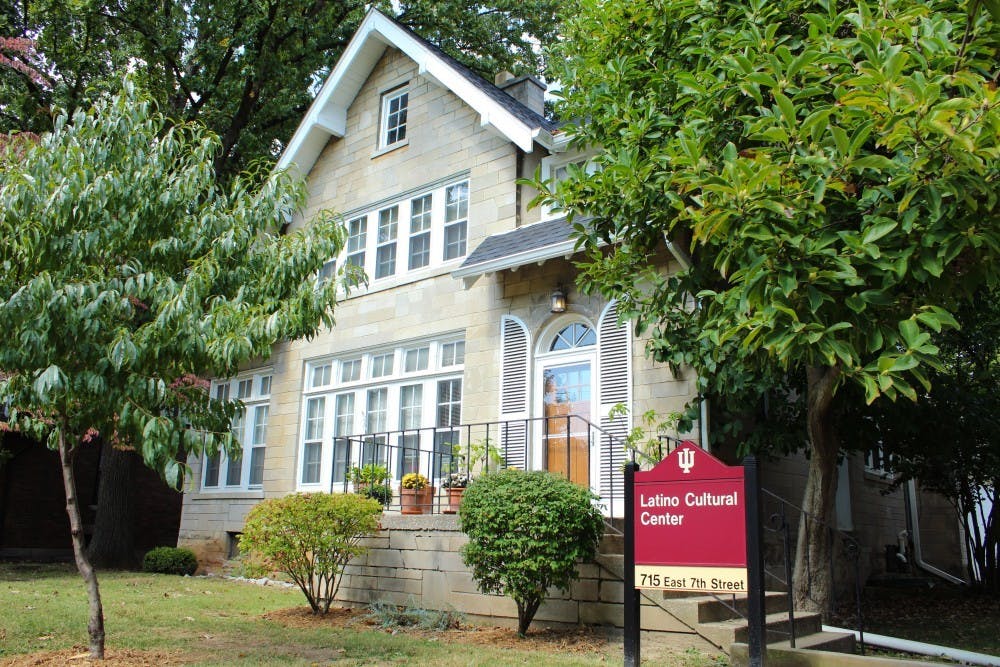La Casa Latino Cultural Center is seeking to provide accessibility to healthy, nourishing foods for students at IU by taking cost out of the equation with a new free pantry with local farm produce.
Between 9 a.m. and 9 p.m. Monday through Thursday, and 9 a.m. to 5 p.m. on Fridays, students can pick up fresh produce, eggs and bread at La Casa, located at 715 E. Seventh St.
Ruth Vaca, La Casa’s administrative generalist coordinator, said that the pantry, which began this past summer, has been successful among students, noting that the food goes extremely quickly each week. Between 3 p.m. and 4 p.m. each Tuesday, the pantry receives a delivery from a local farm, is restocked and is given out on a first come, first serve basis. Already, Vaca said she may have to begin asking for more donations because the produce has been claimed by 5 p.m. each Tuesday.
Vaca said it’s important to La Casa that they do not require students to explain themselves to utilize the pantry.
“We're really trying to encourage that they feel safe taking something that's provided for them, and they have no guilt about it,” Vaca said.
At first, Vaca said she thought students might be shy about the pantry. However, she already has seen its impact and importance.
“They're so happy about it,” she said. “They really want it and appreciate it and they put it to use right away.”
The pantry’s food vendors are sourced from and organized through People’s Cooperative Market. It is a market community participating in Community Supported Agriculture, a term used to describe local growers and consumers that work together and support each other to support local farms and create farmland that becomes “the community’s farm,” according to the National Agriculture Library.
Vaca said when La Casa receives a delivery, students often make meals and snacks with the food at La Casa, trying out new recipes with fruits and vegetables they have never tried before.
“For example, I had a student who had never had a yellow squash before,” Vaca said. “He had it here, I made it for him, and he loved it.”
To Vaca, this chance for students to experience and try out new foods also creates the opportunity to remind them of the importance of fresh vegetables, fruits and herbs, and provide accessibility to them.
Also, the deliveries are “thematic” and personal to Latine students who go to La Casa, Vaca said.
“We culturally eat specific foods and The People's Cooperative Market knows that we use more of certain ingredients than others, so they always make sure to give us things like cilantro or squash or zucchini, little things that we use, like peppers, the things that maybe other communities don't use as much,” Vaca said.
One student and volunteer at La Casa, Brian Cabral, said he takes food from the pantry almost every time he is there.
“I’m big broke, so it does help,” he said. “It’s just nice to have food. I talk to people around here, and I wouldn’t say food insecurity is really bad, but it definitely does exist with my peers.”
According to a study conducted by The Hope Center from 2021, 34 percent of college students were food insecure in 2020. Also, according to the National Postsecondary Student Aid Study released in 2021, Black, Hispanic or Latino, American Indian, and Alaska Native students had 3 to 7 percent more difficulty accessing and paying for food than their white or Asian peers.
Cabral said food insecurity among students at IU becomes worse throughout the year.
“Especially second semester because your scholarship money gets smaller and your savings from summer, you spend them all,” Cabral said.
The idea for La Casa’s produce pantry came from Sidd Das, an IU alumnus and past intern at IU Campus Farm. Das, according to Vaca, was very interested in working against food insecurity and helped kickstart the produce pantry. Now, he works as Garden Coordinator at Mother Hubbard’s Cupboard, a food pantry and garden in Bloomington.
In the future, Vaca said she would like La Casa to do even more to combat food insecurity and begin to receive larger shipments of food. Vaca said that she would like if more farmers were interested in providing fresh produce for students, helping them practice cooking skills and become more informed about their nutrition.
Along with this, Vaca said she thinks it could be helpful to students to provide recipe cards for the foods that come, giving them ideas for the kits they receive.
Along with La Casa’s pantry, Crimson Cupboard and the Satellite Food and Hygiene Pantry at IU offer free food to students, staff, and faculty that are dealing with food insecurity. Crimson Cupboard can be found at 800 N. Union St. in the Campus View Apartments. The Satellite Food and Hygiene Pantry can be found in the Indiana Memorial Union at 900 E. Seventh St.
For students struggling with food insecurity, the Emergency Meal Program is available at IU, providing up to five meals per semester for students that are registered shoppers at Crimson Cupboard.
To help the pantry, Vaca said people can support the People’s Cooperative Market and sponsor Community Supported Agriculture by paying for boxes that farms create and donate. If people want to support La Casa with donations, they can contact La Casa at lacasa@iu.edu.



